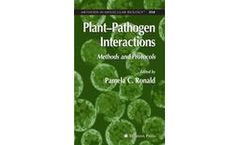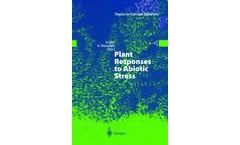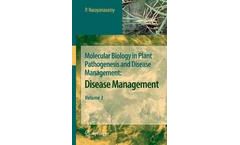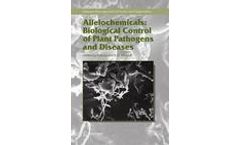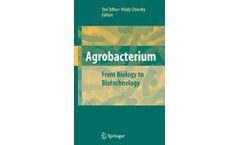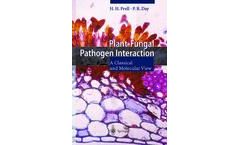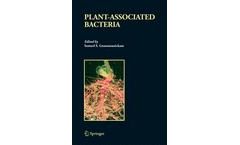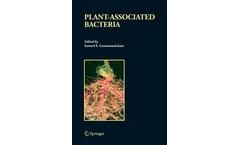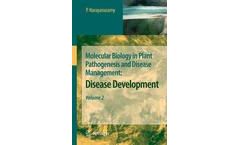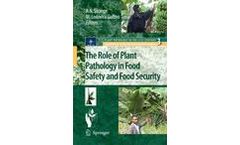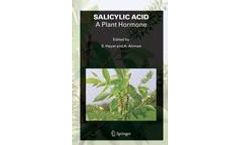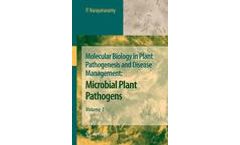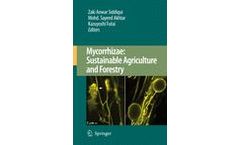Refine by
plant-pathogens books
18 books found
Plant Pathogenic Bacteria includes symposia and research papers presented at the 10th International Conference on Plant Pathogenic Bacteria. The book provides the complete text of 22 symposia papers that summarize the state-of-the-art of the many facets of phytobacteriology including disease control, taxonomy, genetics of ...
Plant-Pathogen Interactions: Methods and Protocols provides key methods, approaches, and strategies to dissect the plant defense response. Addressing methods to identify and characterize plant resistance genes as well as pathogen-associated molecules that trigger the plant defense response, this ...
This volume contains 16 articles describing the most modern topics in biocontrol of plant pathogens, including risk analysis for the release of microbial antagonists, genetic engineering and application of tissue culture. ...
Xanthomonas is a bacterial plant pathogen which infects a wide range of crops worldwide. This book presents an overview of the host plants and the diseases caused by the pathogen on different crops. ...
Apart from biotic stress caused by plant pathogens, there are a number of abiotic stresses such as extremes in temperature, drought, salinity, heavy metals and radiation which all have detrimental effects on plant growth and yield. However, certain plant species and ecotypes have developed various mechanisms to adapt to such ...
Investigations on various aspects of plant-pathogen interactions have the ultimate aim of providing information that may be useful for the development of effective crop disease management systems. Molecular techniques have accelerated the formulation of short- and long-term strategies of disease management. Exclusion and eradication of plant ...
Biological control of plant diseases and plant pathogens is of great significance in forestry and agriculture. There is great incentive to discover biologically active natural products from higher plants that are better than synthetic agrochemicals and are much safer, from a health and environmental point-of-view. ...
Agrobacterium is a plant pathogen which causes the "crown-gall" disease, a neoplastic growth that results from the transfer of a well-defined DNA segment ("transferred DNA", or "T-DNA") from the bacterial Ti (tumor-inducing) plasmid to the host cell, its integration into the host genome, and the expression of oncogenes contained on the T-DNA. ...
Cultivated turfgrass is an assemblage of mown, perennial grasses or prostrate-growing forb plants and a suite of microbes all competing with each other in a common environment. This book approaches turfgrass diseases from an ecological perspective and explains with examples how wild plants and microbes have co-evolved. It addresses the identification, biology and integrated management of both ...
Research on the interactions of plants and phytopathogenic fungi has become one of the most interesting and rapidly moving fields in the plant sciences, the findings of which have contributed tremendously to the development of new strategies of plant protection. This book offers insight into the state of present knowledge. Special emphasis is placed on recognition phenomena between plants and ...
This volume is developed on the broad theme of plant-associated bacteria. It is envisioned as a resource volume for researchers working with beneficial and harmful groups of bacteria associated with crop plants. The book is divided into two parts. Part I (9 chapters) on beneficial bacteria includes chapters on symbiotic nitrogen fixers, diazotrophs, epiphytes, endophytes and rhizosphere bacteria ...
This volume is developed on the broad theme of plant-associated bacteria. It is envisioned as a resource volume for researchers working with beneficial and harmful groups of bacteria associated with crop plants. The book is divided into two parts. Part I (9 chapters) on beneficial bacteria includes chapters on symbiotic nitrogen fixers, diazotrophs, epiphytes, endophytes and rhizosphere bacteria ...
Studies on the phenomenon of plant pathogenesis (disease development) have been useful to have a deep insight into the interactions between host plant and the pathogen. Depending on the levels of susceptibility (compatibility) or resistance (incompatibility) of the host plant and virulence of the pathogen, ...
Increased travel and increased transport of plant material throughout the world pose ever more significant risks to the health of our plants. These include not only the destruction of our food crops by pathogens which may be imported accidentally ...
Phytohormones are very much involved in directing the plant growth, in a coordinated fashion in association with metabolism that provides energy and the building blocks to develop the form that we recognize as plant. Out of the recognized hormones, attention has largely been focused on Auxins, Gibberellins, Cytokinins, Abscisic acid, Ethylene and more recently to Brassinosteroids. However, in ...
This new series will cover all aspects of research on plant-microbe interactions, including beneficial plant symbioses such as symbiotic nitrogen fixation, plant pathology, plant genetics, molecular biology, agronomy, ecology, and phytochemistry. Over the past several years there has been a tremendous increase in our knowledge of plant-microbe relationships other than the Agrobacterium ...
Studies on molecular biology of pathogens, infection process and disease resistance, have provided information essentially required to understand the vulnerable stages at which the pathogens can be tackled effectively and to adopt novel strategies to incorporate disease resistance genes from diverse sources and /or to induce resistance of cultivars with desirable agronomic attributes using biotic ...
Mycorrhizal fungi are microbial engines which improve plant vigor and soil quality. They play a crucial role in plant nutrient uptake, water relations, ecosystem establishment, plant diversity, and the productivity of plants. Scientific research involves multidisciplinary approaches to understand the adaptation of mycorrhizae to the rhizosphere, mechanism of root colonization, effect on plant ...


